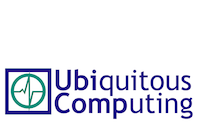EWSN Workshop on On-Body Sensor Networks

EWSN Workshop: On-Body Sensor Networks (OBSN 2020)
In conjunction with EWSN 2020, Lyon France, February 17, 2020
Organizers:
Kristof Van Laerhoven, University of Siegen, Germany
Daniel Roggen, University of Sussex, UK
Mathias Ciliberto, University of Sussex, UK
Mitja Luštrek, Jožef Stefan Institute, Slovenia
Philipp M. Scholl, University of Freiburg, Germany
Abstract
Mobile phones have in the past decades turned into sensor-rich devices, accompanied by a large set of extra wearable devices that can be worn on the wrist, arm, hip, around our chests, in front of our eyes, or in our ears. These devices have enriched our way of monitoring our health, keeping track of our fitness, or have improved the way we interact with digital content around us, allowing for instance gestural interactions or activity recognition. With the rise of such heterogeneous wearable peripherals, the trade-off between their wireless connectivity and their battery-operated nature has pushed research into finding novel methods for sampling, synchronizing, calibrating, interpreting, and disseminating the sensor data as efficiently as possible. This workshop sets out to focus on wearable and networked sensing and actuating devices, and the different methods that are required to keep such devices’ design small and comfortable enough to wear. Interests range from improved ways to efficiently process typical wearable sensors, such as inertial measurement units or photoplethysmography sensors, to novel approaches that allow such data to be transferred across a personal network of wearable units.
We especially encourage participants to bring examples of working wearable sensing units and we will bring ourselves a plethora of such prototypes, so that the workshop can function as a networking event to connect and inform fellow scientists in this area about recent developments, and to ideate about novel methods and future application ideas.
Objectives
We invite contributions that address the questions of how to design novel and efficient networking approaches for wearables, how to optimize built-in wearable sensor processing and learning algorithms, how the hardware and software can be co-designed to realise efficient wearables, and which wearable applications elicit which requirements.
To give a few examples, we see the following areas as perfect examples of research questions that would benefit wearable sensor networks research:
- Novel wearable sensors and/or actuators, local data processing methods
- Defining and evaluating networking approaches to exchange wearable data
- Designing wearable sensors in healthcare (e.g., for self-monitoring, revalidation, ...)
- Privacy and security aspects of wearable networked units
- Innovative sensor data processing tools and methods in resource-limited platforms
- Hardware optimisations for wearable algorithms, and design of wearable algorithms taking advantage of advanced hardware features
- Novel networking concepts, such as capacitive coupling or using conductive textiles
- Experiments and testbed designs for wearable sensors and actuator networks
- Recent advances in IMU networks for body orientation and posture measurements
- Software and hardware tools to support wearable sensing research
- Interesting applications of wearable sensing that work locally and/or in real time
Timeline
- Workshop papers due ……..……………..………………………………… December 05, 2019
- Workshop paper notifications due ……..……………..…………… December 12, 2019
- Camera-ready workshop papers due ……..……………..……. December, 20, 2019
- Workshop date …….……………..……………..……………..……….. February 17, 2020
Each deadline is 23:59 UTC-12 (AoE).
Submission Instructions
All submitted papers will be judged through single-blind reviewing. Please include author names and affiliations along with the title. Accepted papers are required to be presented at the workshop.
Submission Website: click here
Formatting Requirements
Accepted workshop papers will be included in the EWSN 2020 proceedings and will appear in the ACM Digital Library. Submitted papers should not exceed 6 pages, including figures, tables, and references. Authors could use the LaTeX template provided online here.
Program
Monday 17th, 9:00AM - 12:30PM
Location: Projet A.0 - Level 0 - Chappe Building
Chairs (Mathias Ciliberto, Kristof Van Laerhoven)
Yulong Liu (Southern University of Science and Technology, China), Miao Wang (Southern University of Science and Technology, China), Bingyi Xia (Southern University of Science and Technology, China), Terry Tao Ye (Southern University of Science and Technology, China)
Antonis Vafeas (University of Bristol, UK), Md Israfil Biswas (University of Bristol, UK), Xenofon Fafoutis (Technical University of Denmark, Denmark), Atis Elsts (Institute of Electronics and Computer Science, Latvia), Ian Craddock (University of Bristol, UK), Robert Piechocki (University of Bristol, UK), George Oikonomou (University of Bristol, UK)
Mathias Ciliberto (University of Sussex, UK)
Corentin Lavaud (Univ Rennes, CNRS, IRISA, France), Antoine Courtay (Univ Rennes, CNRS, IRISA, France), Matthieu Gautier (Univ Rennes, CNRS, IRISA, France), Olivier Berder (Univ Rennes, CNRS, IRISA, France)
Simon Stankoski (Jozef Stefan Institute, Slovenia), Nina Rescic (Jozef Stefan Institute, Slovenia), Grega Mezic (Jozef Stefan Institute, Slovenia), Mitja Luštrek (Jozef Stefan Institute, Slovenia)
Kristof Van Laerhoven (Universität Siegen, Germany)
